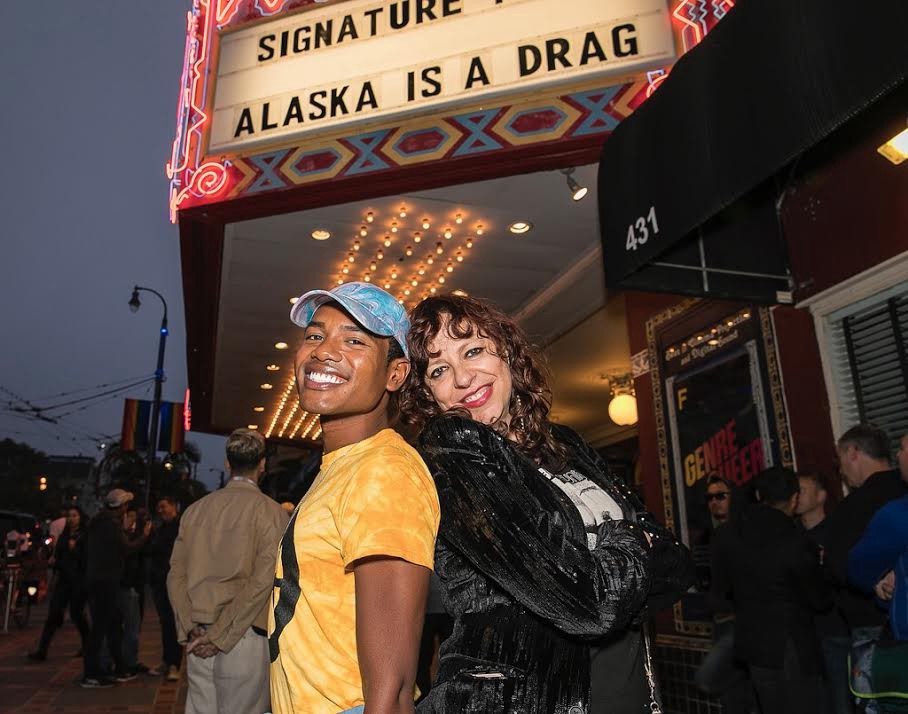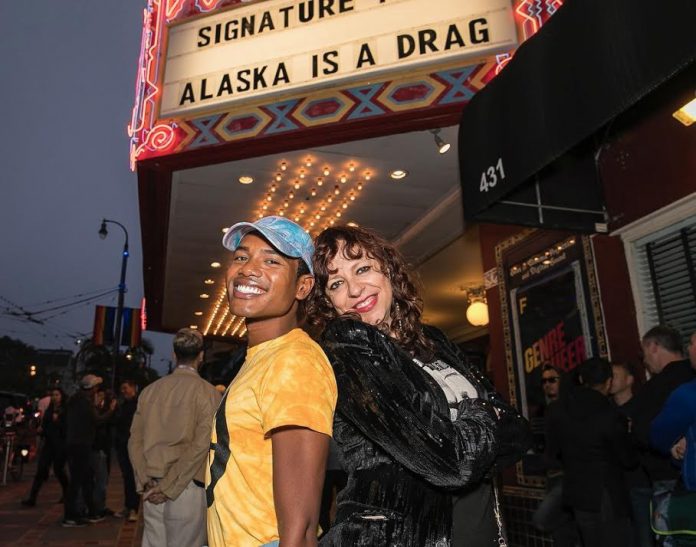Shaz Bennett, director of ‘Alaska is a Drag,’ discusses how much of the drag queen/boxer origin story stems from her own life.

It doesn’t matter where you go. The place you’re from will always remain a large part of who you are.
That’s the lesson learned by Leo, the protagonist of Shaz Bennett’s fantastic feature length directorial debut Alaska is a Drag, which screened Saturday during the Philadelphia Film Festival.
Leo, played by Philadelphia native Martin L. Washington Jr., is a drag queen who boxes on the side. Or, a boxer who performs in drag on the side. Whichever way you look at it, he’s stuck in a small town in Alaska where his lifestyle is looked down upon and often leads to him being tormented. He and his sister are stuck there trying to raise money to pay for her chemotherapy, but they both dream of one day trading in the Northern Lights for the city lights of Los Angeles.
The film’s gooey center is encased in a tasty crunchy shell. There’s a bite to it that doesn’t shy away from the struggles its main characters undergo, but Bennett and the cast make it impossible to look away from with their infectious charm.
The Northeast Times chatted with Bennett the day of the screening hours after she had flown into Philly (no, she’s not from Alaska, sadly). Here’s what she had to say about the movie, and how many elements stemmed from her own life.
Even though neither of you are from Alaska, there are plenty of autobiographical elements in the movie from both you and Washington. How did this impact the movie?
There are a lot of elements that are autobiographical [laughs]. One of the main themes of the movie is Leo and the characters trying to get out of the town they grew up in for what they think will be a better life.
I grew up in Salt Lake City, Utah and was always afraid to tell people where I’m from after I moved to L.A. Then I realized, if people judge me for where I’m from, that’s on them. There will always be a part of where you’re from inside of you.
Washington was perfect for the role. How did you find him?
I read about 150 kids for the role, looking for a kid who was believable as a boxer and a drag queen. But most of all I needed an actor. Martin found me on Facebook. He sent me a message saying, “You have to cast me, this is my whole life, I grew up in Philly, my dad was tough on me, my mom was missing,” all these parallels to his personal story.
I loved him a lot and tried to cast other roles against him. Going through the whole process made Martin and I super close, and made the character really grounded.
The film presents many different characters in different stages of coming to terms with their sexuality. Why did you think this was important?
I in general am very interested in gender. Something I wonder a lot is, why is it a bad quality for a young boy to have a lot of feminine qualities? Femininity is not a bad thing. A lot of the movie was coming from that. I wanted to explore the time in someone’s life where they don’t even know what their sexuality is, but people are defining them for how they present themselves on the outside.
I grew up with four brothers, played basketball, and was more of a tomboy. I remember being told I was in the wrong bathroom when I was a kid. I’m married to a man in real life who I adore, but I’ve definitely gone through the gamut of sexuality in my personal life. My experience in small towns is, people just don’t talk about stuff like that. I wanted to play around with what’s spoken and unspoken.
Why did you choose Alaska as the film’s setting?
One summer years ago, I went up there to raise money to move to New York City. I fell for an ad that said you’ll make $50,000 in a summer. What I ended up doing was slicing and processing fish in a cannery, being paid minimum wage for a really horrible job. I think I responded to being in a small town that’s so gorgeous and beautiful and there’s such incredible ethereal beauty in landscape, but the people there can be unforgiving, and if you stand out in the crowd you can kind of be “other-ized.”
Experiencing that was sort of the beginning of the film. There was one gay bar we would go, and the bartender was like Margaret Cho [who played a bartender in the movie]. It really felt like living on the edge of the world, especially if you didn’t feel comfortable at a regular bar.
How does it feel to see the film screen in Philly?
I’m so excited. I’m so psyched to be in Martin’s hometown, and people here have been big supporters. I love festivals, and it’s an honor to be amongst all these great films. My first job was taking tickets at the Sundance Film Festival, and since then I’ve loved the atmosphere of them. That job changed the trajectory of my existence. ••





